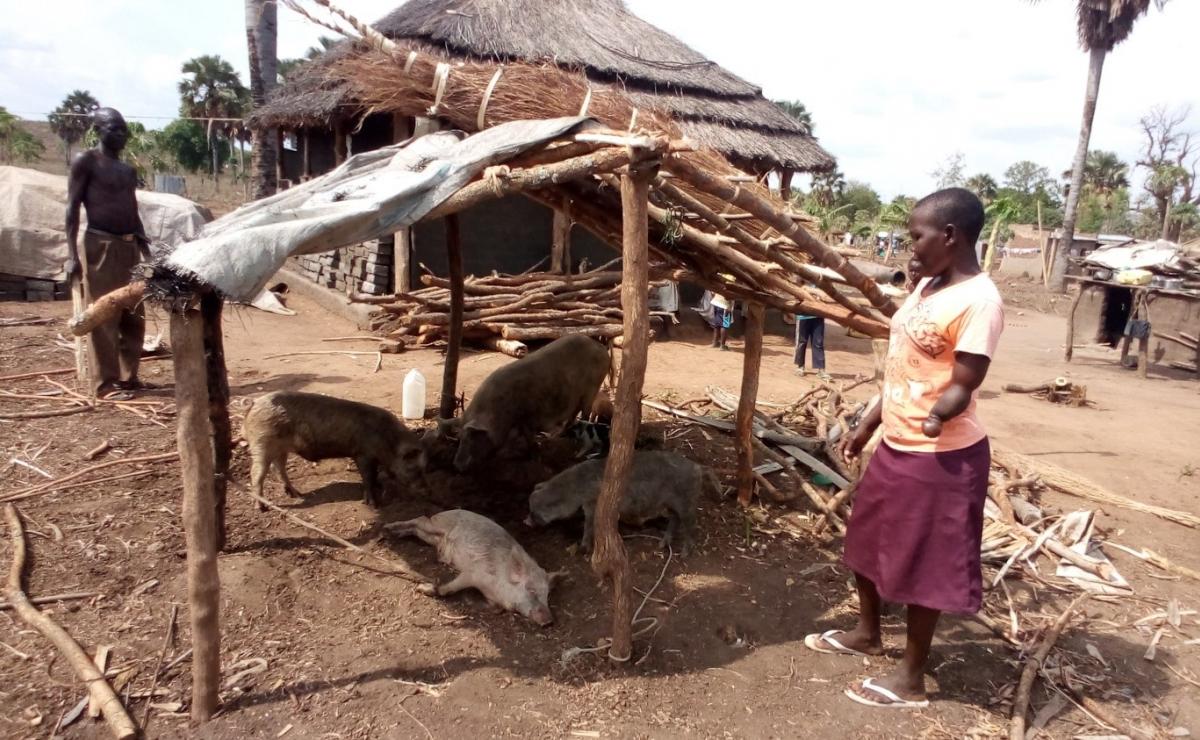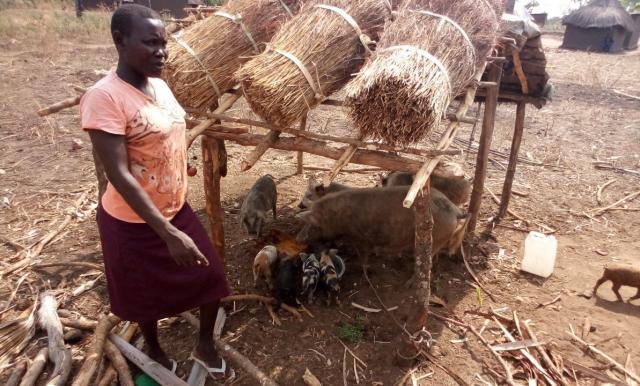Palorinya refugee with disability minting money from farming

In 2020, Refugee leaders identified Robina Liong as living with a disability of one hand as a woman at risk and forwarded her details for the protection and livelihoods support under the Reconnecting Lives, vision and Empowerment (ReLiVE) project implemented by LWF Uganda.
Amid South Sudan’s conflict, Liong had fled into the Palorinya Refugee Settlement in 2018, five years after losing her husband, the sole breadwinner.
“Life was very hard as I struggled to make ends meet given that my physical disability encumbered my ability to perform regular tasks that would otherwise enable me to earn a living and supplement on food rations,” says the mother of three.
“The children and I could hardly have more than one meal a day,” she adds.
With funding from the Bureau of Population, Refugees, and Migration (PRM), LWF trained Liong in life skills, business management, financial literacy and provided a cash grant of Shs410,000 ($210) to start an Income Generating Activity (IGA) of her choice.
This aimed to empower her to meet her household’s basic needs and ensure a dignified protective environment.
With the grant, she bought ten kuroiler chicks (which can survive under the same conditions just like the indigenous ones but mature faster) at Shs 100,000 (about $27.33) and a female piglet at 120,000 (about $33) and used the rest of the money for feeds and drugs.

“I sold the chicken at Shs25,000 (about $7) each and made a profit of Shs125,000 (about$34) after three months,” Liong reveals
After six months, the pig gave birth to 6 piglets which have also produced others that she sells at Shs80,000(about $22), which has generated enough income at regular intervals to support her household needs. On average, she can make over Shs50,000(about $14) profit on any sale of her piglets.
By March 2021, when we filed this story, Robina had four mature pigs, five piglets, a cash order of 50 kuroiler chicks and the three goats she bought using her first sales.
“With the income, I get from farming, I renovated my shelter, and I can afford a balanced diet for my children” Liong approves of the project impact on her life. She says the project intervention retrieved her from the pangs of poverty.
“What PRM has done for women is making a positive impact in our lives, and we pray the project continues giving support to other women still suffering,” she adds.
Life as a refugee is hard, but living as a refugee with a disability is harder. Too often, society excludes refugees with disabilities. Yet, they possess exceptional skills and, when provided with an opportunity to develop them, can significantly contribute to their communities and their own lives.
-END-

